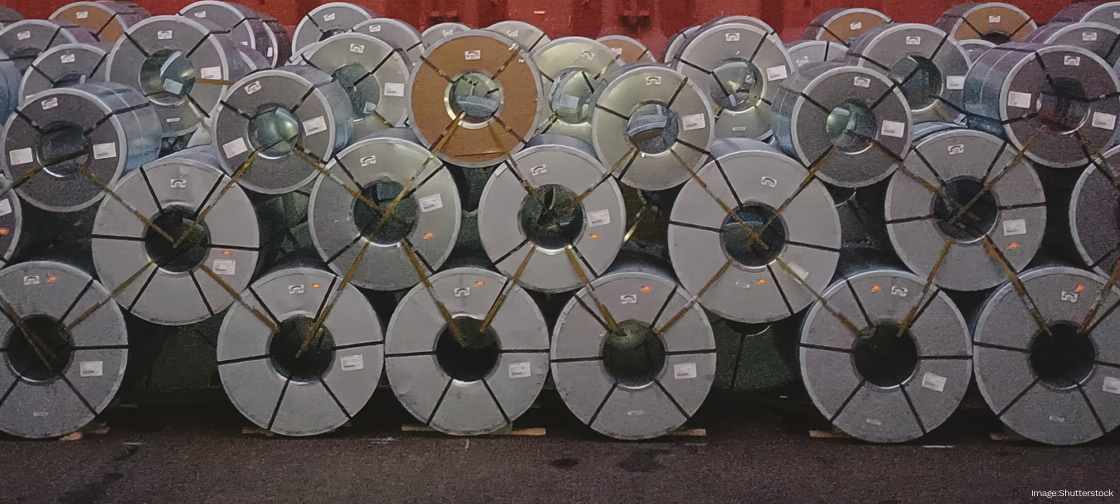 The EU's world-first CBAM is poised to transform global trade, driving an ever-sharper divide between companies embracing sustainability – and those struggling to adapt.
The EU's world-first CBAM is poised to transform global trade, driving an ever-sharper divide between companies embracing sustainability – and those struggling to adapt.
When EU policymakers crafted the world's first Carbon Border Adjustment Mechanism (CBAM), they aimed to shake up global trade by leveling the playing field – forcing companies in carbon-regulated regions to compete fairly with those in places with weaker environmental rules. While the mechanism is not yet operational, both companies and the lawyers that advise them say it represents a major gamechanger.
As of October 2023, producers of aluminum, fertilisers, cement, steel, hydrogen, and electricity must measure the carbon dioxide emissions generated during the production of all goods they export to the EU. As of January 2026, they will be required to pay the EU’s carbon border tax. As the CBAM will align with the EU's emissions trading system (ETS), the price per tonne of imported goods is, as of today, €67.88 – but by 2035, it could be as high as €200, according to BloombergNEF.
The idea is that EU-based producers have been at a competitive disadvantage for years because of the EU's sophisticated ETS, which it introduced years before much of the rest of the world. The belief is that this has made it difficult to compete with companies in countries not subject to carbon pricing, stalling economic growth within the bloc and limiting certain EU industries' ability to be part of the energy transition.
Thousands of companies globally are expected to be hit by the CBAM, with Russia and China accounting for more than one-quarter of EU trade in affected industries (based on 2019 data). The UK, Turkey, and Norway are also home to a high proportion of affected companies. According to analysts Wood Mackenzie, the CBAM is expected to generate more than $US9bn in revenues per year from all sectors by 2030. Some of that will go to EU countries, and some will be redistributed to developing country trading partners to incentivise decarbonisation.
The first-mover advantage
All of this means that for companies around the world that have been leading on sustainability, the CBAM could represent a major export opportunity – while others say it is so far an economic and compliance-related headache.
PT Gunung Raja Paksi (GRP) is one of Indonesia's biggest steel producers, and has been facing significant competition from Chinese steel mills in recent years. "That means we have to be very different in our approach," Kelvin Fu, GRP's Jakarta-based chief transformation officer, tells EEI. Unlike its competitors which tend to use blast furnaces, GRP uses electric arc furnaces, and in June 2024 secured $60m in financing from the International Finance Corporation, which is directly tied to GRP’s decarbonisation efforts.
"There are not many electric arc furnace mills in Asia that will be able to export their steel to the EU in the future," says Fu. "With the CBAM in place, the higher the carbon tax, the less competitive blast furnaces become, and the more competitive we become. This is a game-changer for us."
While it is facing higher compliance and operational costs than its competitors today, GRP has concluded that in the coming years it will have a far bigger market share "in places like the EU that are serious about carbon", adds Fu. And this first step from the EU – combined with the IFC's financing – could open up further markets for GRP, he explains, because other countries are highly likely to follow in the EU's CBAM footsteps.
Adapt or die
Serbian-German phosphoric acid and mineral fertiliser producer Elixir Group is another of those companies. As Matthias Predojević, Elixir's vice president of corporate development, tells EEI, 70% of its products are imported internationally – and mostly into the EU – and the business has long taken a proactive approach towards energy efficiency and sustainability.
"Elixir Group values the transition to low-carbon alternatives, both in terms of raw materials and energy, so measures have already been taken to reduce emissions," says Predojević. “We are strongly focused on reducing energy dependence on fossil fuels. Decarbonisation of mineral fertiliser production is achieved through the use of raw materials and energy sources that require fewer resources and energy to produce."
As he explained, Elixir Group strives for complete decarbonisation in the production of thermal energy as a large consumer. When it comes to electricity, they are planning investments in renewable energy sources, solar and wind power plants.
These decisions have been driven by cost and energy efficiency, but the company's carbon footprint has fallen in parallel. "To be able to stay long term on the market, you have to be energy efficient and sustainable – it's absolutely logical," he adds. "We are convinced that sustainable chemical production is the only way to survive in the future."
Elixir Group is committed to the full implementation of CBAM regulations and has established that the company is in good stead to meet EU standards for phosphoric acid production – and potentially even exceed them.
These decisions have been driven by cost and energy efficiency, but the company's carbon footprint has fallen in parallel, he says. "To be able to stay long term on the market, you have to be energy-efficient and sustainable – it's absolutely logical," he says. "We are convinced that sustainable chemical production is the only way to survive in the future."
Serbia is in a somewhat more favorable position compared to other non-EU countries, as it has been a candidate for EU membership since 2012. Most Serbian energy is derived from coal, with the fossil fuel making up around 60% of its total mix, while the remainder is made up of hydropower, wind and solar.
While there is currently no carbon market in place, the Serbian government remains dedicated to advancing its EU membership efforts, which includes aligning its environmental policies with EU standards.
Compliance challenges
While it presents a major opportunity for some companies, for others, the CBAM is "primarily a compliance challenge", says Dylan Geraets, counsel at law firm Mayer Brown in Brussels. This applies to both non-EU businesses and those within the bloc that rely heavily on the imports of CBAM-affected goods, and in his experience, has been the consensus across various sectors and company sizes.
"Many non-EU companies are struggling in their attempts to satisfy the requests to collect and provide data on actual emissions," adds Geraets. "They do not have the ability to provide verifiable emissions data, as no reliable and accepted monitoring systems are in place. In the absence of information on current emissions, it is premature to speak of a switch to different, less CO2 - intensive product processes or technologies," he says.
Meanwhile Totis Kotsonis, a trade-focused partner at law firm Pinsent Masons in London, says that in his experience, most companies are still working out the extent to which the CBAM will affect their business.
He acknowledges the dialogue about the regulatory complexity it introduces, but says "there is a general sense that businesses are in fact adapting and implementing the necessary processes that would allow them to comply with the new law".
Trade wars ahead?
GRP's Fu believes that policies like the CBAM – combined with steps towards a global carbon price – will help drive demand for grid decarbonisation around the world. "There's a lot of international funding going towards helping Indonesia to decarbonise its grid, but demand also needs to be there," he says. GRP has told the Indonesian government it is ready and willing to invest in renewables.
But GRP may well be an outlier. Policymakers from certain countries, including but not limited to India and China, have been vocal about what they perceive to be an unfair system that discriminates against their domestic industries. Many used the Cop29 talks in Baku, Azerbaijan as an opportunity to raise these concerns, and while the issue was not tackled in the end, reports suggest that their request delayed the opening plenary.
According to consultancy Grant Thornton, while most countries with a large proportion of affected companies are actively engaging the EU to seek exemptions or solutions, "China is seeking alternative markets to reduce its dependency".
While there have not been formal challenges at the World Trade Organisation just yet, it has been discussed – and the US' re-election of Donald Trump, who has never shied away from a trade fight, heightens that likelihood, says Pinsent Masons' Kotsonis.
"A number of countries [believe] the EU's expectation that the CBAM would incentivise the adoption of local measures that promote decarbonisation to be misplaced, given the costs that such measures would involve," says Kotsonis. "All in all, CBAM was and continues to be controversial, and it is too early to say whether it will have the desired effect of ... facilitating the move away from carbon-intensive processes at a global level."
Fu says that as a long-term steel market participant, GRP has long had to be cognisant of global trade protectionism. "Asian countries in general, where manufacturing dominates, will be price-takers on the CBAM – they have no choice but to embrace it," says GRP's Fu. "Most of these companies are very late in the game and have no clue how they're going to respond to the CBAM."
The future of trade
Indeed at an energy industry event in Belgrade in November, representatives from heavy industry affected by the CBAM – including cement producer Lafarge Serbia and steel firm Metalfer Group – asked the Serbian government to align its rules with the EU's mechanism.
The UK has already concluded a consultation process on a CBAM to complement its ETS, and Australia, Canada, South Korea and Taiwan are all reportedly considering introducing their own carbon border adjustments.
There are approximately 75 carbon pricing instruments in place as of today, covering 24% of global emissions – but that is likely to change once the CBAM is fully operational, says Fu.
"I believe that once governments realise that there's carbon leakage and companies are paying other governments taxes, they will say: stop that, and pay me instead," says Fu. "I think in a few years everyone will be rushing to implement a carbon tax. People are really underestimating the power of the CBAM."
